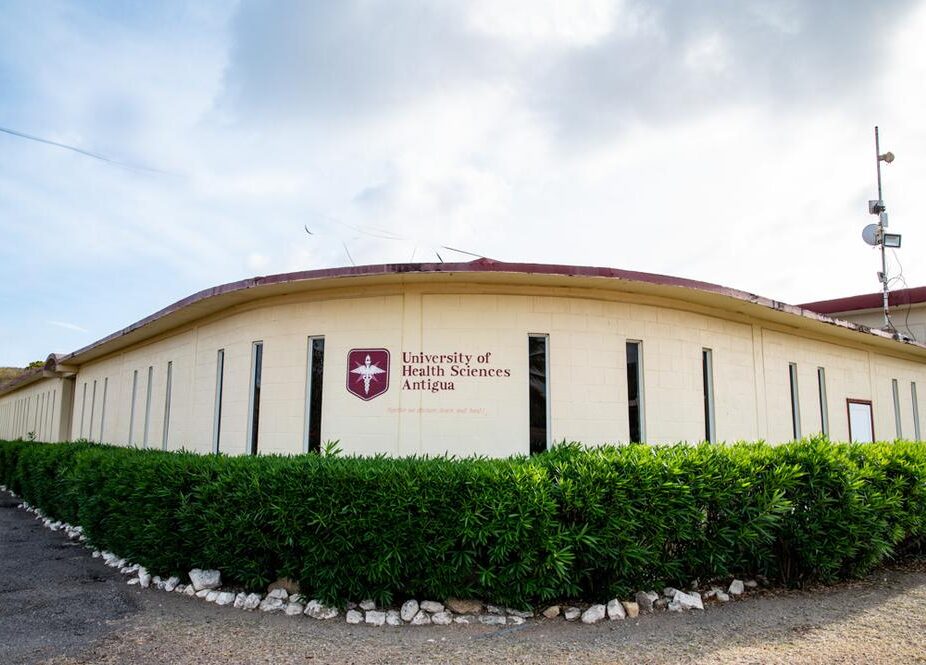Why the Ranking of The University is Not Important

Selecting a university is a big step for any student and their family. Pursuing higher education takes dedication and time. Your families need to assure themselves that the universities you will attend as medical students will be outstanding.
You cannot turn back the clock on your future, after all.
This is why many people look to university rankings.
Unfortunately, university rankings are biased toward those with big budgets for marketing schemes, research, and Public Relations (PR). Given that most universities are publicly owned, they have generous budgets paid by their local governments.
Rankings tend to focus on one aspect of university life, neglecting all its many other functions. The data on which they are based are lacking and untrustworthy, and more critically, they distort universities' and even governments' self-perceptions.
The data needed to properly analyse and compare universities in different countries, as rankings claim to do, has to correlate in some way. The problem is that other than with respect to extensive research, such data is hard to obtain, if it even exists. It doesn’t help that something as simple as the definition of “student” may have a different meaning from one country to another.
Moreover, these rankings do not factor in the most important aspects that will shape you as a person, which include:
- What you’ll actually learn beyond the course material;
- the university’s diversity;
- different extracurricular activities offered (sports, competitions, etc.);
- whether you love the city you study in;
- what the culture of the country and the city you are going to live in is;
- the qualities of the teachers
- your enjoyment of the process.
These are some significant factors that no statistic can measure. At the end of the day, they are the things that shape your youth and experiences while studying medicine.
Additionally, several studies have concluded about the importance of personal ability, motivation, ambition, and passion. The degree might indeed provide a head-start in some cases, but the individual characteristics of the student are what’s crucial for success.
Table of Contents
- 1 Why do rankings exist
- 2 The inconsistency of rankings
- 3 Why do the US and UK have the top-ranking universities (Government funding for research, PR, marketing)?
- 4 What do the rankings miss?
- 5 Why Rankings Alone Shouldn’t Define Your University Choice
- 6 The benefits of studying medicine in Europe that the rankings don’t cover
- 7 The placebo effect of the top-ranking universities.
- 8 Look Beyond Rankings to Choose the Right Medical School for You
- 9 Summary
Why do rankings exist
The UK and the US are famous for having top-notch universities. For most families, higher education for their children is essential. However, it is also costly. Which is why they imagine “it’d better be worth every penny.” This is why rankings exist. To prove and justify that one university is somehow better than others based on some specific, biassed factors. It’s no more than a marketing scheme.
People pay a lot to join the “elite” educational system. Because of this, there is a myth that Eastern European education is inferior to British education. In reality, many universities in Eastern Europe and the UK teach the same materials, especially in medicine.
They buy the same machines and tools from the same sources. And no matter where you go, we all study the same human bodies.
While rankings exist to provide a sense of comparison, they often lack consistency and fail to account for factors that matter most to students.
The inconsistency of rankings
Time Higher Education (THE), University Impact Ranking, QS World University Ranking, and the Center for World University Ranking (CWUR) are the most famous university ranking websites. However, their rankings vary. Sometimes, they vary so much that one university might be in entirely different echelons.
For example, the London School of Economics and Political Science ranks 27th globally according to THE, 49th according to QS, and 274th according to CWUR!
What’s the difference between 27th and 274th places? 247 places. Isn’t that a lot? And it’s the same university, with the same quality of teaching.
Why do the US and UK have the top-ranking universities (Government funding for research, PR, marketing)?
Under the current criteria, the marketing budget plays an enormous role in the rankings. It’s all about how much the school can afford to spend on PR, including getting featured in magazines, television, websites, and so on.
It’s almost like a popularity contest, which the smaller universities in Europe cannot afford to participate in, but this does not at all relate to the quality of education.
For example, some of the factors are:
- Funding offered to students (scholarships and bursaries)
You could expect that for there to be scholarships, the university has to have a huge budget. However, the budget doesn’t define the quality of education.
- Research citations and papers published
This is by far the most important criterion according to the agencies creating the rankings. However, a lot of specialists don’t agree with this.
We don’t agree with this either because the student has gone to study abroad to become an educated, professional medical doctor. There will be plenty of time for research after graduation.
Obviously, conducting research is needed in research publications. Staff-to-student ratios, which are claimed to be measures of teaching commitment, actually also correlate to research capability. The logic is that the more research a university does, the more staff it employs and the better its staff-to-student ratio. Another major outlier here is that staff numbers not only include the academic staff but also gardeners, cleaners, and administrative staff.
Given that conducting research is extremely expensive, the larger the staff and the better the staff-to-student ratio, the higher a university's budget will be. British and US universities receive immense financial support, so they can afford to spend money on research, and therefore, they rule the top of the tables.
On the other hand, just because the university conducts research doesn’t mean that students will participate in it.
- Academic reputation
The academic reputation is based on how well-known the university is, along with its age.
- The student-to-faculty staff ratio
This is a criterion where smaller European medical schools truly shine. This is the case since there are usually not more than 1,000 or 2,000 students, but the number of teachers is almost the same as with a huge university with all sorts of study programmes.
- Employer reputation
Employer reputations are again linked to PR practices. If the medical school doesn’t invest money and promote teachers, they won’t rank high. Smaller European medical schools prefer to invest in the quality of education.
- Award winners
Ranking based on award winners is good, but bear in mind that a university with 10,000 students will have a higher chance of having award-winning students than one with 1,000 students.
The reputation surveys carried out by ranking and survey organisations are also clearly related to research. Foreign academics generally become aware of a university found in another country through the research activity and publications of its staff. Broadly speaking, 90% of rankings are based on the measures of research performance.
What do the rankings miss?
Rankings focus mainly on academic success, GPA scores, papers published, employment rate, average salary after graduation, and the opinions of alumni, staff, and field experts.
Almost half of the QS ranking data is formed by opinion surveys. Essentially, it is what people think or have a particular opinion on a certain university. A reputation survey is not always a reliable or impartial way to measure anything, let alone judge quality. Regardless of its unreliable nature, this is the type of data used in the absence of credible information. To boost responses even further, they’d also use the votes/opinions of poll-takers who may be deceased for 5 years. Any other data is just as unreliable since the universities themselves generate the numbers and are subject to minimal quality control by the rankers.
However, because these surveys ask for other people’s subjective opinions, it is only natural that some would favour a “prestigious” university only because of the fame that comes with it.
This means that other universities and programmes without famous names usually don’t appear on the ranking lists, even if their methods might be better.
Does the ranking tell you how much support you'll receive during your studies? Will it tell you about the cultural richness of the city you’ll be living in or how motivated the professors are to teach?
Quite often, you will meet extremely talented and passionate lecturers in small universities. If you like studying medicine—it is your passion—you will definitely connect with the lecturers. You share this great passion, and they will share a lot of their experience.
It is also essential to know where exactly you are going to live. How many other international students will be at your university?
How hard will it be to learn the native language of the country you will study in?
What is the country’s culture?
How beautiful are the cities?
There are just so many more things that the university rankings miss. And they may misguide you! Studying medicine or dentistry abroad is truly magnificent.
Why Rankings Alone Shouldn’t Define Your University Choice
It's understandable to consider university rankings when making a decision. However, focusing solely on rankings can lead to overlooking medical schools that better align with your personal goals and learning style.
For instance, select European and Caribbean universities offer smaller class sizes, providing personalised attention from professors in an environment where many students thrive. Additionally, studying abroad can offer unique cultural experiences and exposure to diverse healthcare systems. This will not only enrich your medical education but will also help you lead a fulfilling student experience.Remember, while rankings provide a general overview, they don't capture the full picture. Consider what aspects of a university experience are most important to you - and make an informed decision based on that.
The benefits of studying medicine in Europe that the rankings don’t cover
There is a reason why Europe is called the cradle of Western civilisation.
Any country or city in Europe has a rich culture with its own beauty.
Europe has been home to some of the oldest medical universities in the world, like the University of Bologna in Italy, founded in 1088, or the Jagiellonian University Medical College in Poland, founded in 1361. Their programmes have withstood the test of time, and no little detail has been overlooked.
There are also many opportunities available for every student! If you have a Shingen visa, you can freely travel across various countries. The tuition fees are all very affordable, especially in the Eastern part of Europe.
Isn’t this how you would like to spend your youth as a student? I want to study in great medical schools while having the opportunity to experience many other languages, cultures, and more.
If I haven’t convinced you yet that Europe is the best place to study medicine, read our article “21 Thrilling Reasons to Study Medicine in Europe in 2024”.
The placebo effect of the top-ranking universities.
Studying medicine, you will often hear the term “Placebo effect.”
The placebo effect is an interesting phenomenon when something is fake; for example, a dummy pill can cause the effects of a real pill. There are many clinical records of fake treatments that have had real therapeutic results.
It is believed that because people perceive the treatments as real, they convince themselves that they will get better. Their subconscious minds start acting to improve their states because they still believe that they have the assistance of the treatment pills. In reality, your body will help itself.
Scientists are still researching this effect.
Similarly, choosing a university based solely on rankings may give you an initial boost in confidence, but it’s the quality of education, your personal growth, and the opportunities provided that will truly determine your success.
Without a doubt, if you graduate from a top-ranking medical university, you will be able to say proudly, “I finished in one of the best universities in the world”.
Having this supporting your resume, you will be more likely to find a job once you graduate from some respected company.
But does it really have anything to do with the fact that you’ve graduated from a top university? In my personal experience, it’s all about your self-esteem and how you position yourself.
The way you view yourself might be influenced by the perceived prestige of your school.
This effect gradually disappears for older people, meaning the university you will go to will have less and less effect the further you get into your career.
Look Beyond Rankings to Choose the Right Medical School for You
Many students initially focus on rankings, associating them with quality education or prestige. However, rankings don’t address key factors like your learning environment, personal support, and the global opportunities available to you.
To find the university that’s truly right for you, consider asking yourself:
- What type of environment will help me succeed academically?
- How important is mentorship to my education?
- Do I value practical, hands-on learning experiences?
At Medlink Students, we focus on connecting you with universities that provide more than just academic excellence. Universities that prioritise smaller class sizes, hands-on learning, and personalised guidance ensure you get the most out of your education.
Summary
University rankings will not disappear anytime soon. This is why we must understand their limitations and biases.
University rankings might seem like a reliable guide, but they only scratch the surface. When choosing where to study, it’s crucial to look beyond rankings and consider the factors that will shape your success, such as the quality of teaching, the level of support, and the opportunities available.
If you want to participate in a graduate programme in medicine or dentistry, you will study for 4 years or less. But the majority of the students will spend 6-5 years. This is a big-time investment, so you must ensure that you will spend these years well.
At Medlink Students, we connect you with universities that align with your goals and ensure you have the tools to excel in your career.
Additionally, you can always book a consultation with us, and we will help you make a good decision regarding your future. It’s free.
Leave a Reply

About Medlink Students
Leading international recruitment company for medical students in Europe. British Council Certified Agents. 10+ years of experience and more than 10,000 students advised.








